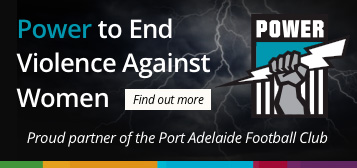Connection to culture plays a vital role in nurturing children and young people. Aboriginal and Torres Strait Islander foster carers are needed to provide this crucial support to children living away from home. We have compiled some frequently asked questions to give you an understanding of what is involved in becoming a foster carer, and the unique role you can play in a child’s life at a time when they need it the most.
Why is it important for Aboriginal and Torres Strait Islander people to become foster carers?
They are able to share their rich cultural background with non-Aboriginal children while normalising cultural practices for Aboriginal and/or Torres Strait Islander children in their care.
What are the requirements of a foster carer?
Carers must be willing to participate in training and the assessment process, and demonstrate a capacity to work with Centacare to meet the changing needs of a child.
We provide assessment and training for foster carers at no financial cost to the carers. We work in an open and transparent manner and support potential carers through the assessment process to ensure that foster care is the right decision for you and your family members.
You will be required to undertake:
- Department of Communities and Social Inclusion Screening (DCSI) check by the Department of Child Protection (DCP)
- Health check
- Home safety check
- Personal reference check
- Ex-partner checks where children are involved
Prior to your approval as a foster carer, you will be required to complete ‘Shared Stories Shared Lives’ training. This is the official training package for foster carers used across South Australia and consists of nine modules of around two hours each (18 hrs approximately) and covers issues relating to children in care. The modules usually take place over two weekend days and one weekday evening session. Other compulsory training includes child-safe environments, first aid, safe infant care training (if caring for a child aged under two years) and therapeutic care.
What unique support can Aboriginal and Torres Strait Islander people provide to children?
Aboriginal or Torres Strait Islander people often have firsthand experience and understanding of the impact that being placed in out-of-home care has on children. This may include emotional anguish and loss of identity as a result of being separated from family, community and culture.
Aboriginal or Torres Strait Islander carers will have a connection to the Aboriginal community and knowledge of cultural gatherings and, possibly, of the child’s cultural group and family members.
Is age a factor in becoming a foster carer?
Foster carers are generally aged between 25 and 70 years. Younger applicants may be considered, depending on their circumstances.
Carers can include:
- Individuals (male or female)
- Couples (including same sex couples)
- People with their own children
- People who do not have children
What type of care do foster carers provide?
Carers can provide the following types of care:
- Short-term up to approximately 18 months
- Long-term care
- Respite care
All types of care are needed for children aged between 0-17 years.
Can Aboriginal and Torres Strait Islander carer’s care for non-Aboriginal children?
Yes. This can be beneficial to the non-Aboriginal child. Centacare will ensure carers receive appropriate supports to assist them to meet the child’s needs.
Can Aboriginal and Torres Strait Islander people in rural and remote area participate in our foster care program?
To be part of the program, you must live in metropolitan Adelaide, Adelaide Hills, Barossa and Light and lower North regions.
What sort of support does Centacare provide Aboriginal and Torres Strait Islander foster carers?
Yes. You can speak with Aboriginal Consultant Les Wanganeen about what is involved in becoming a carer as well as any other questions you may have.
Ongoing training and support is provided by the Aboriginal Consultant and program support workers to assist foster carers in their professional and personal development. You will work as part of a care team, to ensure that children can enjoy safe, secure homes, and that carers are supported to prepare them for both the challenges of fostering and reunification.







